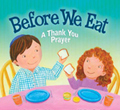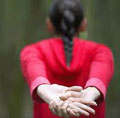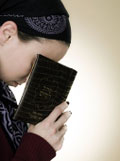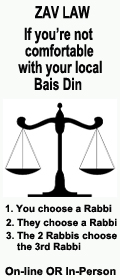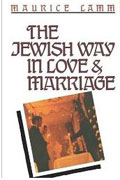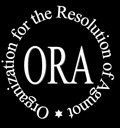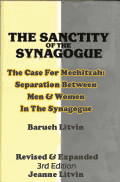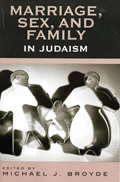Q & A HALACHA
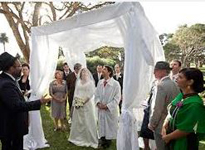
Every Day Family Questions & Answers
♦♦♦♦♦
PAGE 2 - FAMILY
♦♦♦♦♦
May women eat before davening?
- Some poskim say that Sephardi women may eat before davening & Ashkenazi Women
may not (Ishei Yisrael 13:30; Rav Avraham Yosef). - However, even for Ashkenazi women some poskim say that if a woman wants to eat before
davening, she should say a short prayer that includes praise of Hashem, a request to
Hashem, & thanks to Hashem. - Many women eat after reciting Birchos ha-shachar based on those poskim who rule that
this fulfills the minimum prayer obligationan & that women may rely on this leniency & eat
before davening even though they intend to daven the entire davening later on. (Igros
Moshe O.C. 4:104-4, Minchas Yitzchak 4:28-3:Halichos Bas Yisrael 2, note 3.). - In addition, it is preferable to also say the first paragraph of shema before eating.
- This solution works even if she is later going to daven a regular davening afterwards.
♦♦♦♦♦
Is a man permitted to eat before davening Shacharis?
- There is a prohibition to eat anything before davening Shacharis.
- This is derived from the verse (Vayikra 19:26),'Lo tochlu al ha’dam' which is
interpreted by the Gemara (Brachos 10b) to mean, One may not eat until he prays
for his blood (i.e. soul).
- The simple reading of Rambam (Sefer Hamitzvos shoresh 9) is that this is a full Torah prohibition.
- However, Mishnah Berurah (89:21) implies that it is only a Rabbinic prohibition.
- Shulchan Aruch (OC 89:3) writes that although it is forbidden to eat before davening,
one may drink water & Poskim extend this to drinking tea or coffee. However Mishna
Brurah writes that one may not add sugar of milk.
- However, the Aruch Hashulchan (89:23) writes that the prevailing custom is to be lenient
regarding adding sugar & milk to coffee as well, since people find it difficult to drink tea
or coffee otherwise. - However, one should only add the minimum amount that they need. Shulchan Aruch
(89:3) writes that one who is ill may eat before davening. Even if he can wait until after
davening, he is not required to do so, because he is eating for medicinal reasons.One
who is hungry or thirsty has the status of a person who is ill so if he can't daven
with kavanah before he eats, he may eat first.
♦♦♦♦♦
Are women obligated to recite 100 brachas daily?
- Many poskim write that women are exempt from this mitzvah.
- As evidence, the Shevet HaLevi (5:23) points out that the Rishonim who list the
100 brachas recited each day include the brachas that are recited on Tallis & Tefillin.
- Since women do not recite these brachas, this would indicate that these Rishonim didn't
consider this obligation to apply to women. - Teshuvos V’Hanhagos (2:129) adds that since the one hundred brachas must be
recited each day, according to some opinions this qualifies the mitzvah as a time-bound
obligation, which women are not required to observe.
♦♦♦♦♦
Does a woman getting married
have to wear a wig (sheitel) during the entire wedding?
- Most authorities are of the opinion that the obligation starts with Kiddushin
(recital of 'thou art betrothed on to me' & placing the ring on the kallah's finger) &
based on this opinion a woman should cover her hair before the wedding ceremony to be
sure it will be covered throughout the betrothal (Eirusin). - In Chassidish circles & the ultra orthodox have the custom to have the Kallah cover
her hair before the Chupah to ensure that her hair will be covered after the Chupah - Sources: Kinyan Tora 2:43; Az Nidberu 8:65; 12:50:1 12:64, Yechaveh Da'as 5:62
Shevet Ha-Levi 9:259; Tshuvos Vehanhagos 4:294; Even Ha-Ezer 55, footnote 25;
several rulings of Rabbi Elyashiv, zt"
1. Some have the custom of being lenient & permit the hair covering to begin the morning
of the wedding
2. Some have the custom to put on the sheitel after Yichud (seclusion room) - Sources: Chasam Sofer Yoreh De'ah 195, Rivevos Ephaim 6, page 570; Avnei
Yushfei 3:107:2; Tehuvos Ve-Hanhgos 4:294, Isheii Yisroel 55, footnote 77; Bnei
Banim 3:23
♦♦♦♦♦
Does a widow or a divorcee have to cover her hair?
HaGoan HaRav Moshe Feinstein (ZTL) ruled that should a divorcee or widow
feel that uncovering her hair would enhance her ability to acquire a match (shiddich)
she is permitted to do so. (Igrot Moshe, Even HaEzer 1:57 and 4:32#4)
♦♦♦♦♦
If my husband & I are in a place
where going to the mikva would cause embarrassment,
can the mikvah be pushed off to after Shabbat
if both the husband & wife agree that would be a better idea?
- Preferrably (Lechatchila) one should go to the mikvah at the first possible opportunity mainly
not to delay the mitzvah objective of (pru urvu) to be fruitful & multiply. (Yoreh De'ah 197); - Also, not to miss an opportunity to fulfill the mitzvah of Onah (pleasure of marital relations) (Shach 197.3)
- However, the Rema advises that one should be stringently careful not to reveal the mikvah night to others (Yoreh De'ah 198)
- In addition the pressure & embarrassment involved may certainly result in diminishing the mitzvah of Onah. Therefore, it would be better to postpone going to the mikvah until after Shabbos.
♦♦♦♦♦
Do you have to wash Netillas Yadayim (with or without a berachah) after
getting up in the middle of the night with the intention of going back to
sleep again soon after for instance to calm a crying child or to feed a baby?
ANSWER
- A person who gets up in the middle of the night does not need to wash Netillas Yadayim,
in particular if he won’t be handling food & not touching his mouth, ears etc. - If he will be handling food or touching such body parts, it is correct to wash Netillas
Yadayim without a berachah.
SOURCES
- Although there are opinions that ruach ra’ah only falls upon a person in the morning
(Eshel Avraham, Orach Chaim 4:1),the general consensus of authorities (who don’t
mention the distinction of the Eshel Avraham) is that any sleep at night is a cause for
ruach ra’ah. - According to mekubalim, this applies specifically to sleep before chatzos.
- Therefore, it is good to wash Netillas Yadayim when getting up in the night, and this is
especially true when a person will be handling food & so on. - However, this is not an obligation & where difficult one can be lenient.
- This is both because of the possibility that ruach ra’ah applies only in the morning, and also because of those opinions who are less stringent with the idea of ruach ra’ah today
(see for instance Yam Shel Shlomo, Chulin 8:31).
Page 1 - Family | Page 1B - Family | Page 2B - Family | Page 2C - Family
Page 2 D - Family - Cats & Dogs
Family 3 - Kosher | Family 3B - Kosher | Page 4B Kosher
Family 4 - Medical | Page 5 - Dire Circumstances | Page 6 - Dire Circumstances
♦♦♦♦♦
Q & A Shabbas 1 | Q & A Shabbas 2 | Q & A Shabbas 3
Q & A Davening | Q & A Business 1 | Q & A Business 2
♦♦♦♦♦
How To Choose A Rabbi | Shiva Call Etiquette
Mikvah | Taharas HaMishpacha
Copyright © 2012 -2018 KosherWoman.com
All rights reserved






